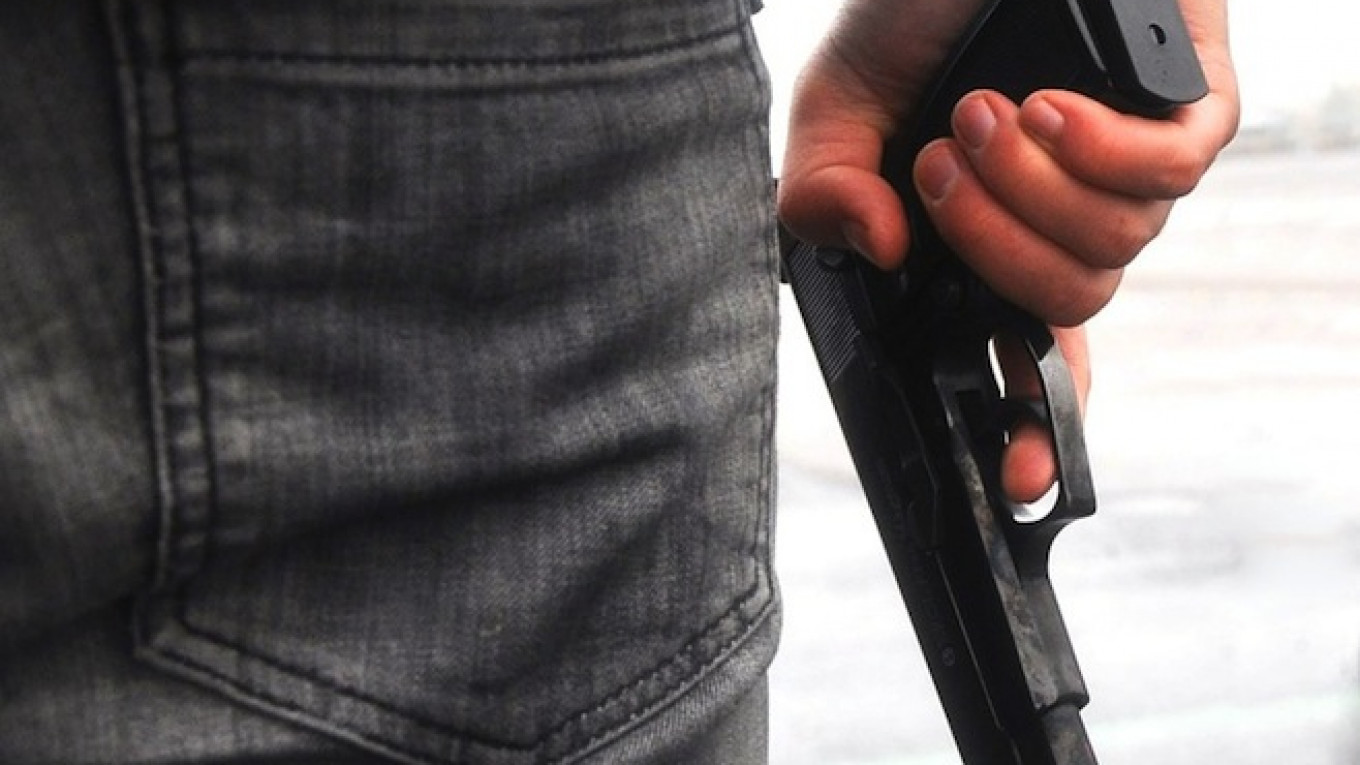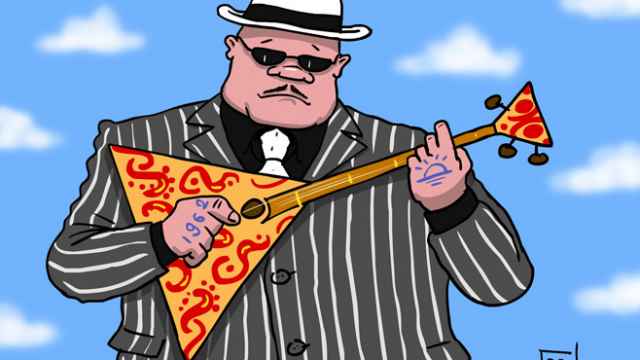At least eight mob bosses currently reside in Moscow, with many of the 44 registered having been chased out of the city, a police representative said Thursday.
"Different sources offer different information about how many mob bosses are in Moscow. A total of 44 are registered, but only eight actually live on the territory of Moscow," Mikhail Gusakov, deputy head of the Interior Ministry's manhunt unit, was cited as saying by Interfax news agency on Thursday.
Some of those registered live outside of Russia or Moscow, he said, while others have already been prosecuted for their crimes, Interfax reported.
Gusakov noted that in 2014 nine mob bosses were brought to justice, Interfax reported.
In late December, the Rosbalt news agency said "several dozen" mob bosses had converged in Moscow for the largest meeting of the criminal underworld in years.
Moscow has been the scene of many high-profile mob hits, including the 1990s-style assassination of Aslan Usoyan, better known as Grandpa ("Ded") Khasan, in 2013. Usoyan was killed by a sniper in broad daylight while exiting a restaurant in central Moscow, triggering fears of a gangland war erupting in the city.
The phenomenon of "vory v zakone," or thieves-in-law, gained momentum with the fall of the Soviet Union, when the leaders of prison groups in the gulags established a flourishing black market that exploited the instability of the new government. Russia's biggest organized crime organizations comprise Georgians, Armenians and Azeri nationals.
In its heyday in the late '90s, Russia's various organized crime factions had such great reach that then-director of the FBI Louis Freeh described the Russian mafia as the greatest threat to U.S. national security, though he later retracted the claim, the BBC reported.
A Message from The Moscow Times:
Dear readers,
We are facing unprecedented challenges. Russia's Prosecutor General's Office has designated The Moscow Times as an "undesirable" organization, criminalizing our work and putting our staff at risk of prosecution. This follows our earlier unjust labeling as a "foreign agent."
These actions are direct attempts to silence independent journalism in Russia. The authorities claim our work "discredits the decisions of the Russian leadership." We see things differently: we strive to provide accurate, unbiased reporting on Russia.
We, the journalists of The Moscow Times, refuse to be silenced. But to continue our work, we need your help.
Your support, no matter how small, makes a world of difference. If you can, please support us monthly starting from just $2. It's quick to set up, and every contribution makes a significant impact.
By supporting The Moscow Times, you're defending open, independent journalism in the face of repression. Thank you for standing with us.
Remind me later.






